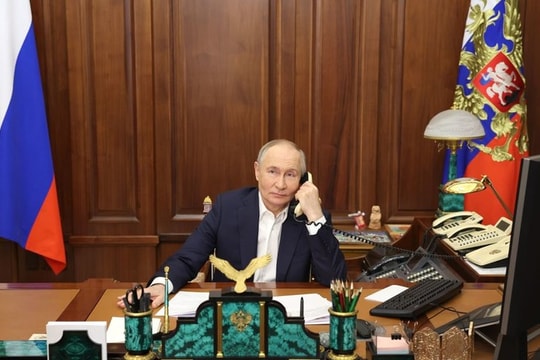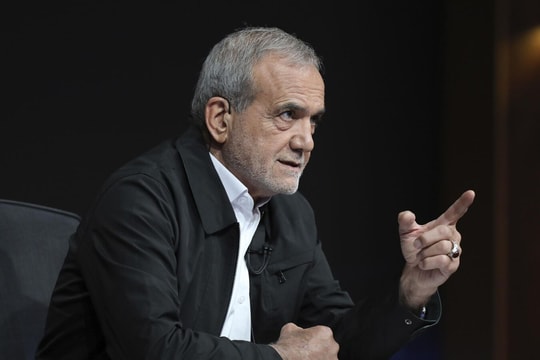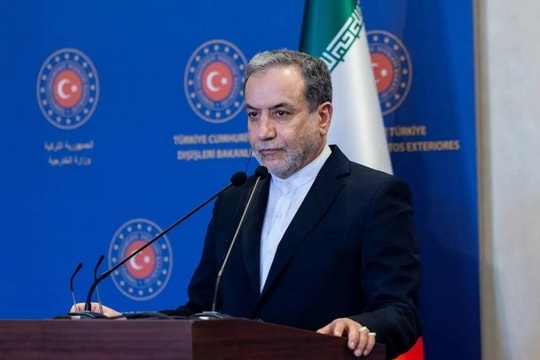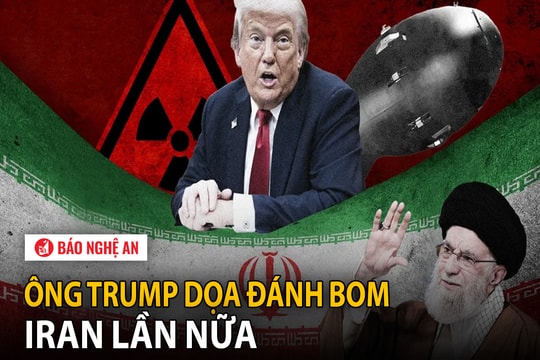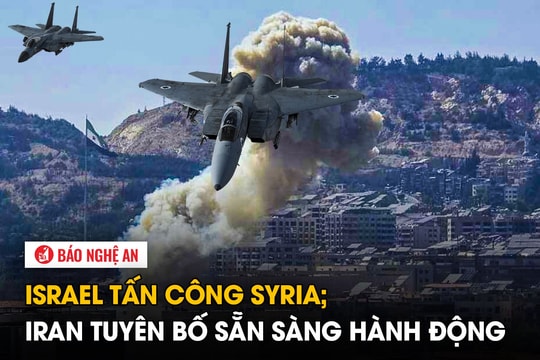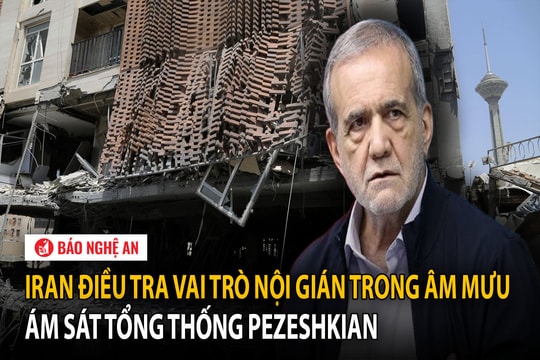Why is Iran suddenly 'tough' on the US?
(Baonghean) - US President Donald Trump withdrew the order to attack Iran just 10 minutes before the missiles were fired. World public opinion breathed a sigh of relief when the US and Iran did not fall into a spiral of military confrontation. President Donald Trump was praised for deciding to "defuse the explosion" at the last minute for a very humane reason.
But with Iran, whether Donald Trump orders an attack or not, these are predictable reactions as this country has continuously taken "tough" actions towards the US recently.
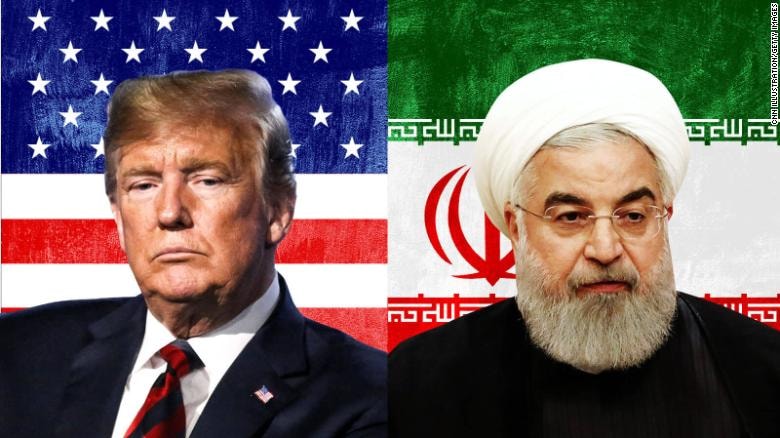 |
| US and Iran - who will back down first? Photo: CNN |
Iran has “nothing left to lose”
Iran's shooting down of a US drone is just part of a series of recent actions that have escalated tensions with the US, although this is the most dangerous action that could potentially trigger a war.
Previously, the attacks on oil tankers in the Gulf of Oman - although Iran has always denied any accusations behind the incident - or Iran's announcement of non-compliance with part of the nuclear agreement signed in 2015 were both viewed with great severity under increasing pressure from the US government.
In the context of “half-boiling water, half-burning”, Iran certainly will not take any action without reason. As the US sanctions are taking effect, putting increasing pressure on the Iranian economy, most analysts believe that Iran only has two options: either continue to resist the sanctions, or submit and accept negotiations as the US wants.
But Iran has shown that it has a third option to break this deadlock, even if it is a risky one. By continuously taking tough actions that escalate US-Iran relations to dangerous levels, Iran has forced the new US to become the one to yield.
 |
| Iran shoots down US drone, escalating tensions. Photo: New York Post |
Iran’s moves are considered to be carefully calculated and fully anticipated US reactions. The sinking of the oil tankers – whether Iran “had a hand” or not – is a way to “internationalize” the conflict between the US and Iran.
If the US retaliates strongly against this incident, the international community will certainly speak out because the oil transportation route in the Gulf is related to the interests of many countries, from Asia, Africa, Europe and America.
The fact that a series of US allies have called for restraint and to ease tensions shows that Iran has not miscalculated. With the shooting down of the US drone, Iran was also very clever when it announced that it only shot down the RQ-4A Global Hawk and “spared” another US spy plane, the P8, which appeared nearby at the same time because the P8 had an American crew on board.
Iran is "betting" that Donald Trump will not order an attack because the US Congress does not want war, the American people do not want war, especially at a sensitive time when the new presidential race has begun.
But even if President Donald Trump does not call off the attack, a limited conflict is within Iran’s expectations. The US strikes may cause some deaths and damage to some infrastructure, but the consequences are not too serious when considering that Iran will receive support from the international community as a “victim”.
Therefore, Iran may find that it has more to gain than to lose by deciding to be “tough” with the US rather than doing nothing and struggling to cope with the sanctions. Iran is not exactly looking for a war, but the risk could provide a solution to a long-standing conundrum between the US and Iran, putting Iran in the position of an active partner rather than a passive one in its relationship with the US.
Create negotiating leverage
With its continued actions — tough enough but not so much that war becomes an inevitable option — Iran has delivered a clear message about how it can “stir up” US interests in the region.
In an interview, US President Donald Trump said that the incidents with oil tankers in the Gulf of Oman were “very small” and not worth going to war over. Regarding the shooting down of the drone, Donald Trump also withdrew the attack order.
Mr. Donald Trump has also repeatedly expressed his desire to negotiate with Iran, including through Japanese Prime Minister Shinzo Abe sending a proposal for negotiations to Iranian leaders during his recent visit to the country. These moves show that Iran has somewhat created “leverage” for negotiations with the US as desired.
The public is now concerned about how Iran will continue to behave after the US President has shown some humility. Theoretically, Iran will have a few options. First, Iran can repeat its provocative actions against the US, continuing to give Donald Trump a "headache" with a series of pressures related to whether to attack or not before choosing to ease sanctions on Iran.
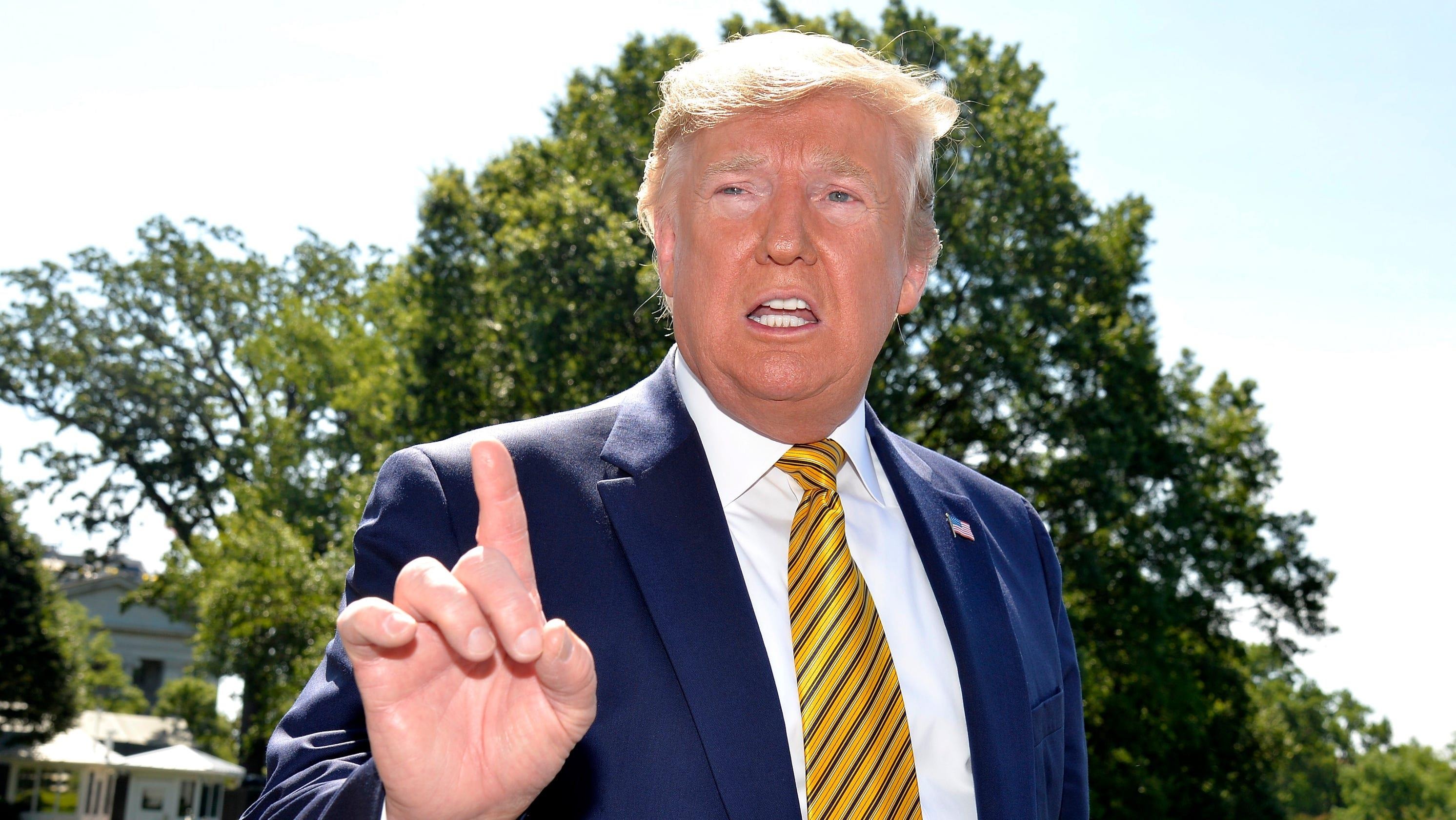 |
| President Donald Trump announced that he will increase sanctions on Iran. Photo: CBS News |
But with this option, Iran also risks tiring the international community, and support could gradually shift to the US. Isolation is certainly not something Iran wants, given that the country is already struggling enough with US sanctions.
Iran’s second option is to stop its provocations, having made its position clear when pressed, and to pursue diplomatic solutions. This option would involve negotiating with the United States in secret, either through a third party or in less public ways.
Both the US and Iran are now taking steps that make it difficult for the other side to make a choice. The US has always maintained that it will only ease sanctions if Iran compromises on its nuclear program - something that Iran finds very difficult to accept.
Iran, on the other hand, has insisted on only negotiating once sanctions are lifted, a stark contrast to the current US administration’s approach. But it’s clear that neither side wants to go to war.
Therefore, it is likely that the US and Iran will continue to struggle close to the dangerous line, and it is very difficult to predict which side will decide to cross that line, or decide to step back to open up opportunities for negotiations for both sides.


